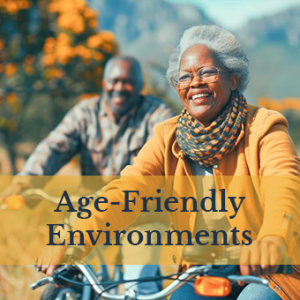
Implementing Age Friendly Care For Older People With Cancer In Rural Australia
Presenter:
Irene Blackberry; Christopher Steer; Fisaha Tesfay; Tshepo Rasekaba; Nicole Webb, La Trobe University, Australia
Abstract
Background: Cancer remains the leading global health, societal, and economic burden, with age being the strongest risk factor for incidence, treatment complications, and mortality. Geriatric assessment (GA) is crucial in guiding treatment decisions for patients over 65, helping to tailor care and monitor risks. Tools like the Clinical Frailty Scale, Groningen Frailty Indicator, and the electronic Rapid Fitness Assessment (eRFA) assess functional, cognitive, emotional, nutritional, and social factors. At the Albury-Wodonga Regional Cancer Centre (AWRCC) in Australia, GA using the eRFA have been part of standard care since 2018. The eRFA is comparable to the Practical Geriatric Assessment developed by the American Society of Clinical Oncology (ASCO) and the Cancer and Aging Research Group (CARG) at City of Hope in the US. It is designed to identify vulnerabilities or impairments in cancer patients aged 65 and over that are not typically captured in standard oncology assessments. However, the outcomes of GA implementation, and its influence on patient outcomes and experiences remain unexplored. This study will conduct a medical record audit to evaluate GA outcomes, implementation of recommendations, and patient perspectives on GA-informed care.
Methods: A mixed-methods approach, involving both quantitative and qualitative methodologies involving medical record audit and one-on-one interview will be used to address the research question.
The medical records of 300 patients diagnosed with any type of cancer who have completed a geriatric assessment using the eRFA at Albury Wodonga Regional Cancer Centre will be retrieved. We will collect data six to 12 months post geriatric assessment to determine the actions taken following geriatric assessment using eRFA. Patient data—including demographics, cancer diagnosis and treatment details eRFA assessments, multidisciplinary team decisions, treatment outcomes, hospitalisations, and survival—will be collected and analysed.
Furthermore, one-on-one in-depth interviews will be conducted with older cancer patients (aged 65+, or 50+ for Aboriginal and Torres Strait Islander peoples) who completed a geriatric assessment using the eRFA six months prior to the survey at AWRCC. Interviews, guided by a semi-structured tool developed from literature, will be conducted in person or via phone, Zoom, or Teams, depending on participant preference. Data will be analysed using the framework approach with NVivo 15, involving familiarisation, thematic coding, and interpretation.
Results: This is a work in progress and the main results will be shared at the time of the presentation, focusing on the implementation of geriatric assessments, care decision pathways, and patient experiences. The study aims to provide contextual evidence on the measures taken following geriatric assessment and the impact of these measures on patients’ outcomes among older adults with cancer.
Conclusions: This study will offer important insights into the role of geriatric assessment in informing cancer care decisions for older adults. Findings are expected to highlight the value of GA in guiding personalised, age-appropriate care and improving outcomes in regional cancer settings.
Bio(s):
Professor Irene Blackberry is the John Richards Chair and Director of the Care Economy Research Institute at La Trobe University. With over 20 years of experience, she is a leading researcher in health services and implementation science, focusing on sustainable care models across healthcare, aged care, and informal care.
She established Australia’s first Care Economy Research Institute, leads a team of 140 researchers, and collaborates with over 100 industry partners. Her work breaks down silos between care sectors and supports diverse and rural communities.
Professor Blackberry is a former President of the Australian Association of Gerontology (Victoria), a member of the NHMRC Council (2021–2024), and an advisor to governments and non-profits. She has secured over $135 million in funding, published 150 reports and articles, and supervised 20 research students, with 9 current PhD students and 10 academic mentees. She holds a PhD and bachelor’s in medicine, plus postgraduate training in economic evaluation.
